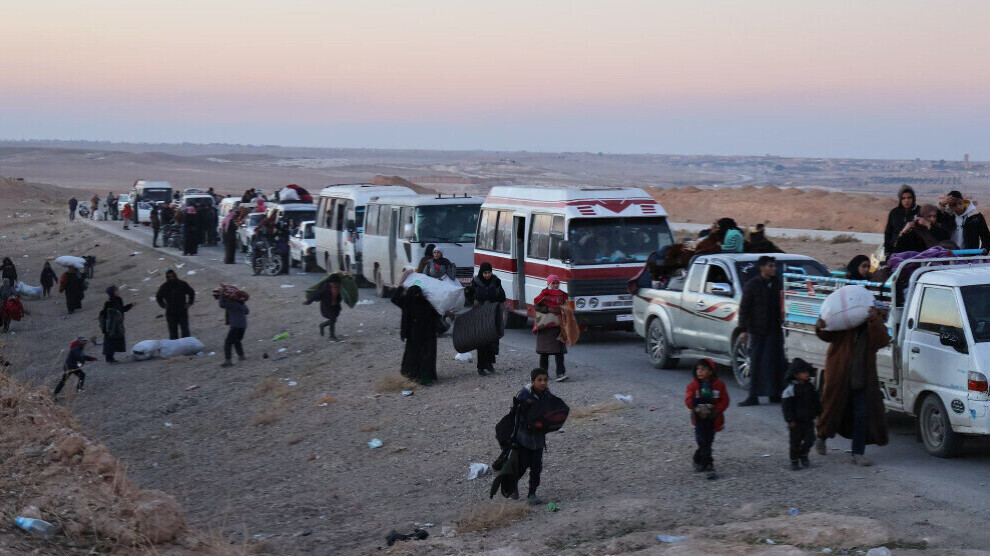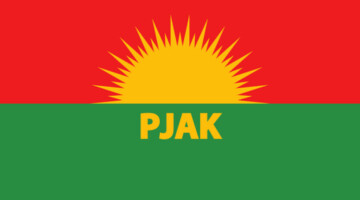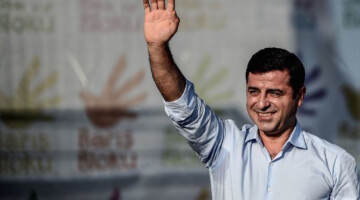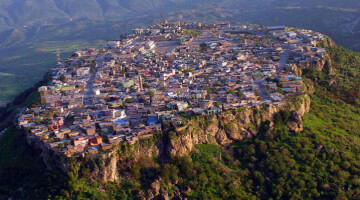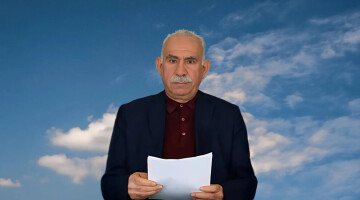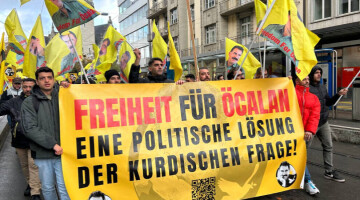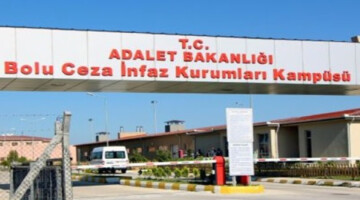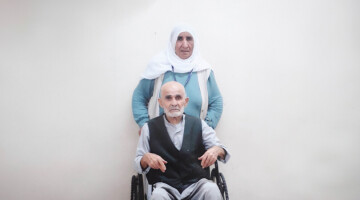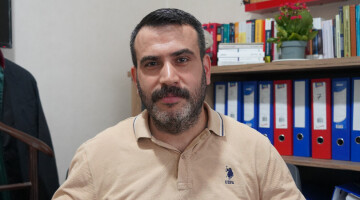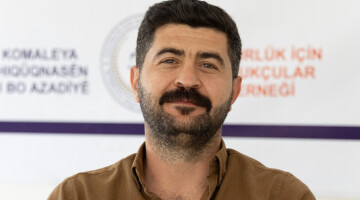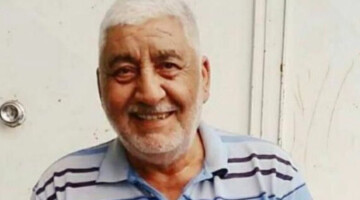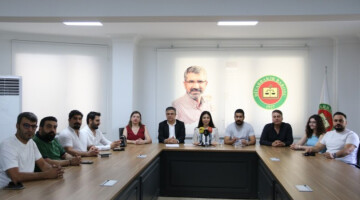Tens of thousands of civilians seeking safety in Kurdish-controlled northeast Syria are facing dire conditions due to the lack of adequate shelter, water, food, and health care, Human Rights Watch said, stressing that all parties to the conflict in Syria are obligated to ensure the unimpeded flow of aid, safe passage to fleeing civilians, and protection for those who stay.
On November 27, a coalition of armed groups including Hay’et Tahrir al Sham (HTS) and the Syrian National Army (SNA) opened military operations against the former government of Bashar al-Assad. Seeking safety from SNA factions seizing territory throughout Aleppo governorate, more than 100,000 people fled to areas governed by the Kurdish-led Autonomous Administration of North and East Syria (AANES). The situation is exacerbating an acute and longstanding crisis, with overcrowded camps and severely damaged infrastructure and a lack of water, power, healthcare, food, and weather-appropriate shelter.
“Amid the extraordinary events taking place in Syria, intense fighting and fear of retaliation and violence by armed groups is displacing thousands of civilians to areas unprepared for such an influx,” said Adam Coogle, deputy Middle East director at Human Rights Watch. “Given the scale of the crisis, only a concerted international effort to provide support to local authorities and humanitarian agencies operating in the region can stave off humanitarian catastrophe.”
HRW pointed out that the HTS-led armed groups are establishing a transitional government that controls the majority of Syrian territory, including the capital, Damascus, with all state institutions, as well as the coastal region. Hostilities are ongoing in Deir Ezzor, Manbij (Aleppo governorate), and Kobane, driving displacement of mostly Kurds, but also Arabs and other communities, as factions of the Turkey-backed SNA are fighting the United States-backed, Kurdish-led Syrian Democratic Forces (SDF), the armed wing of the autonomous administration. The Turkish Air Force has conducted strikes against SDF positions.
Human Rights Watch spoke to five people who fled or whose relatives were forced to flee their homes and seek shelter in the cities of Tabqa, Raqqah, and al-Hasakah and two journalists based in al-Hasakah and Aleppo. Two people interviewed, a Kurd and an Arab Shia, said they feared SNA attacks and abuses, and three said they were insulted at checkpoints. They said they knew of people who had been assaulted or had their phones confiscated en route. Two expressed fear of advancing HTS and SNA groups.
The Turkey-backed SNA has a poor human rights record, said Human Rights Watch, which has found that SNA factions and other groups, including members of the Turkish armed forces and intelligence agencies, have abducted, unlawfully arrested, and unlawfully detained people including children; committed sexual violence and torture with little accountability; and engaged in looting, theft of land and housing, and extortion.
A Yazidi woman said that she left Sardam Camp in the al-Shahba area in Aleppo with her family and that the scale of displacement in northeastern Syria was overwhelming local authorities. “We arrived in Tabqa at midnight” on December 1, she said, after “spending two nights in the cold. Children were crying from hunger and cold. I witnessed two pregnant women give birth without any medical care. It was heartbreaking to see so much suffering.”
She said she left Tabqa and headed to al-Hasakah three days later because there was no available shelter. “We urgently need shelter, medicine, and food,” she said. “With winter here, we also require proper winterization support to cope with the cold.” She also said they experienced verbal abuse and harassment by SNA fighters at checkpoints “regardless of whether we were Yazidi or not, simply because we were Kurdish.”
Another Kurdish man who fled with family members from Tel Rifaat, north of Aleppo, to Tabqa city on December 2, said armed groups at SNA checkpoints verbally abused them and that they witnessed apparent atrocities including unidentified charred bodies on the road. “We arrived in Tabqa on Tuesday evening [December 3] and sought refuge in a school,” he said. “NGOs and authorities provided us with food, kerosene, and mattresses, but many families remained without proper shelter, resorting to the streets for accommodation.”
The Northeast Syria NGO Forum reported on December 7 that overwhelming numbers of people were arriving in northeastern Syria, including in Tabqa, prompting the opening of a new reception site on December 4 and the use of an additional 35 buildings to host internally displaced people. In Raqqa, the situation remained critical even though the authorities opened more than 70 buildings as temporary collective shelters. In Tabqa and Raqqa the reception sites have reached full capacity. The authorities also established reception sites in Kobane, al-Hasakah, and Qamishli.
Local authorities are using 186 schools in Raqqa, Tabqa, al-Hasakah, and Qamishli as shelters, disrupting the education of nearly 185,000 students, according to the United Nations. Health care services and water and sanitation services are also severely affected.
HRW noted that humanitarian conditions in the area were dire before the new hostilities. The UN Office for the Coordination of Humanitarian Affairs (OCHA) has said that conflict in northeast Syria has “damaged civilian infrastructure and humanitarian assets, and disrupted services.” After Turkey’s 2019 invasion of northeast Syria and the ensuing mass exodus of mostly Kurds from the now Turkish-occupied areas, the population in al-Hasakah governorate went from of under half a million to two million. During the recent violence in Lebanon, 23,000 displaced people entered northeast Syria.
Tens of thousands of internally displaced people living in overstretched camps and shelters in northeast Syria have lacked sustained or adequate aid over the years, while an acute water crisis affecting al-Hasakah region put further strain on local authorities and nongovernmental groups supporting the displaced communities.
Earlier hostilities in the region, between October 23 and 26, severely damaged critical infrastructure, including “electricity transfer stations, gas and fuel plants, medical facilities, agricultural lands, silos, and major access routes,” according to the UN. This has affected access to water, electricity, heating, health care, and food.
Parties to the conflict should refrain from attacks that target civilians and civilian objects as well as indiscriminate attacks, take all feasible precautions to avoid civilian casualties, and ensure that civilians can flee the fighting safely. They should also ensure that fighters do not harass, arbitrarily arrest, or mistreat residents who choose to remain in newly captured areas and hold anyone responsible for violations accountable.
The UN says that the humanitarian crisis in Syria continues to be one of the world’s most severe, with 16.7 million people needing aid as of September, before the entry of more than half a million people from Lebanon due to the conflict with Israel there.
“Parties to the conflict should urgently remove any impediment to aid delivery to areas not under their control in northeast Syria, and the autonomous administration should scale up support where possible. International donors should increase their funding,” HRW stated.
“The dire situation of displaced people in northeastern Syria won’t solve itself,” Coogle said. “Donors, humanitarian agencies, and the United Nations should center their response around a rights-based approach to alleviate people’s needs.”

